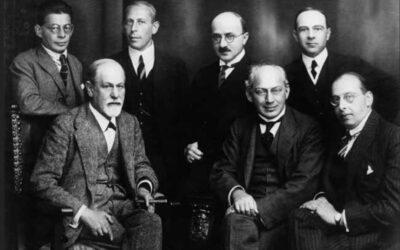Who was Plato?
The field of depth psychology delves into the exploration of the unconscious mind, examining the intricate workings of the human psyche. While modern psychology has made significant strides in understanding the complexities of the mind, it is crucial to acknowledge the profound contributions of ancient philosophers. One such luminary is Plato, who, through his philosophical writings, demonstrated an astute understanding of the human psyche centuries before the advent of modern psychology. This article explores Plato’s division of the self into three parts, his exploration of contradictory and opposing drives in human nature, and how this understanding resonates with and lays the groundwork for contemporary therapeutic approaches such as Internal Family Systems (IFS), voice dialogue, Adlerian compensation and gestalt therapy, and Carl Jung’s archetypal theory.
Plato’s Tripartite Model of the Soul:
In his seminal work “The Republic,” Plato introduces a tripartite model of the soul, dividing it into three distinct components: the logistikon (reason), the thymoeides (spirit), and the epithymetikon (appetite). According to Plato, these parts represent the various aspects of human nature and are often in conflict with one another.
The logistikon embodies our rationality, seeking truth, wisdom, and logical decision-making. It is the part of the soul that strives for knowledge and understanding, guiding us towards virtuous actions based on reason and sound judgment. Plato believed that the logistikon should be the ruling part of the soul, governing the other parts with wisdom and prudence.
The thymoeides, or spirit, encompasses our emotions, passions, and desires for recognition and honor. It is the source of our courage, ambition, and sense of self-worth. The thymoeides drives us to excel, to defend our beliefs and values, and to seek validation from others. However, when unchecked, it can lead to excessive pride, aggression, and a thirst for power.
Lastly, the epithymetikon represents our appetites and instinctual drives related to bodily needs and pleasures. It includes desires for food, drink, sex, and material possessions. The epithymetikon is essential for our survival and well-being, but if left unconstrained, it can lead to overindulgence, addiction, and a lack of self-control.
Plato’s tripartite model of the soul provides a framework for understanding the complex interplay of reason, emotion, and instinct within the human psyche. It highlights the potential for inner conflict and the need for harmonious integration of these parts for optimal functioning and well-being.
Contradictory Drives and the Unconscious:
Plato’s conceptualization of conflicting drives within the human psyche foreshadowed the later insights of depth psychology. He recognized that these internal conflicts could shape an individual’s behavior and their perception of reality. Although Plato did not explicitly use the term “unconscious,” his understanding of the human psyche encompasses elements that resonate with the modern concept.
Plato understood that beneath the surface of conscious awareness, there lies a vast realm of hidden motivations, desires, and beliefs that influence human behavior. He recognized the need to bring these unconscious elements into conscious awareness to attain self-knowledge and personal growth. This insight laid the groundwork for the development of depth psychology centuries later.
In “The Republic,” Plato uses the allegory of the chariot to illustrate the struggle between the rational and irrational parts of the soul. The charioteer represents reason, while the two horses symbolize the spirited and appetitive parts. The charioteer must skillfully guide and control the horses, ensuring that they work together harmoniously. This allegory captures the essence of the unconscious conflicts that can arise within an individual, emphasizing the importance of self-awareness and self-mastery.
Plato’s recognition of contradictory drives and the unconscious aspects of the psyche set the stage for later psychological theories that delved deeper into the hidden recesses of the mind. His insights provided a philosophical foundation for understanding the complex nature of human behavior and the role of unconscious processes in shaping our experiences.
IFS Therapy and Integrating Conflicting Drives:
Contemporary therapeutic approaches, such as Internal Family Systems (IFS) therapy, echo Plato’s recognition of conflicting parts within the self. Developed by Richard Schwartz, IFS acknowledges that individuals possess various internal subpersonalities or “parts” that represent different aspects of their personality. These parts often have distinct beliefs, desires, and emotions, which can lead to internal conflicts.
IFS therapy aims to help individuals develop a greater understanding and acceptance of their various parts, promoting self-compassion and inner harmony. The therapist guides the client in exploring and communicating with these parts, fostering a sense of curiosity and openness. By engaging in a dialogue with these parts, individuals can gain insight into their underlying needs, fears, and motivations.
Similar to Plato’s division of the soul, IFS recognizes the existence of disparate parts, each exerting its influence on an individual’s thoughts, emotions, and behaviors. The goal of IFS therapy is to facilitate the integration and harmonious functioning of these parts, allowing the individual to access their innate wisdom and self-leadership.
IFS therapy emphasizes the importance of the “Self,” which is seen as the core essence of an individual, distinct from the various parts. The Self is characterized by qualities such as compassion, curiosity, clarity, and confidence. It serves as the guiding force that can help navigate and integrate the conflicting parts of the psyche.
Plato’s tripartite model of the soul and his recognition of internal conflicts provide a philosophical underpinning for the principles of IFS therapy. By acknowledging the existence of multiple parts within the self and the need for their integration, IFS therapy offers a practical framework for individuals to explore and reconcile their inner conflicts, promoting psychological well-being and personal growth.
Intellectual Knowledge versus Emotional Integration:
Many individuals seeking therapy often possess a degree of intellectual understanding regarding the changes they need to make in their lives. They may recognize the importance of healthier behaviors, more balanced thoughts, or improved relationships. However, despite this intellectual awareness, they may struggle to implement these changes on an emotional level. This discrepancy arises from the inherent conflict between different parts of the self.
Plato’s insights shed light on this struggle, as he recognized that intellectual reasoning alone is often insufficient to overcome deep-seated emotional conflicts. In “The Republic,” Plato argues that true knowledge involves not only intellectual understanding but also a transformation of the soul. He emphasizes the importance of aligning one’s actions with one’s beliefs and values, a process that requires emotional integration.
Similarly, in therapeutic settings, individuals may intellectually grasp the need for change but find themselves emotionally resistant or conflicted. They may experience a disconnect between their rational understanding and their emotional experiences. This disconnect highlights the complex interplay between the different parts of the self, as described by Plato.
Therapeutic approaches like IFS therapy recognize the importance of bridging the gap between intellectual knowledge and emotional integration. By engaging with the various parts of the self and fostering a compassionate dialogue, individuals can begin to address the underlying emotional blocks and conflicts that hinder change.
The process of emotional integration involves acknowledging and validating the experiences and needs of each part, rather than simply relying on intellectual reasoning to override them. By creating a safe and non-judgmental space for these parts to be heard and understood, individuals can develop a more harmonious relationship with themselves, facilitating genuine change and growth.
Plato’s insights into the nature of knowledge and the importance of emotional integration provide a philosophical foundation for understanding the challenges individuals face in therapy. His recognition of the need for a holistic transformation of the soul, encompassing both intellectual and emotional aspects, resonates with contemporary therapeutic approaches that emphasize the integration of the self.
Human Nature and Reconciling Drives:
Human nature, as understood through Plato’s tripartite model, encompasses the interplay between reason, spirit, and appetite. We are a product of these conflicting forces, constantly navigating the tension between them. Recognizing this inherent conflict within ourselves allows us to approach therapy and personal growth with greater compassion and understanding.
Plato’s division of the soul highlights the complexity of human nature and the challenges we face in reconciling our diverse drives and desires. The logistikon, thymoeides, and epithymetikon each represent distinct aspects of our being, with their own needs, motivations, and potential pitfalls.
logistikon
The logistikon, embodying reason and wisdom, seeks truth and virtue. It strives for knowledge, understanding, and rational decision-making. However, when disconnected from the other parts of the soul, it can lead to a cold, detached intellectualism that neglects the emotional and instinctual dimensions of human experience.
thymoeides
The thymoeides, representing spirit and passion, fuels our ambition, courage, and sense of self-worth. It drives us to excel, defend our beliefs, and seek recognition. Yet, when unchecked, it can manifest as excessive pride, aggression, and a thirst for power, leading to conflict and discord.
epithymetikon
The epithymetikon, encompassing our appetites and instinctual drives, is essential for our survival and well-being. It motivates us to fulfill our basic needs and seek pleasure. However, when left unconstrained, it can lead to overindulgence, addiction, and a lack of self-control, undermining our overall well-being.
Reconciling these drives requires a delicate balance and integration. Plato emphasizes the importance of the logistikon, or reason, in governing the other parts of the soul. Through self-reflection, wisdom, and virtue, individuals can cultivate a harmonious relationship between their rational, spirited, and appetitive aspects.
Contemporary therapeutic approaches, such as IFS therapy, voice dialogue, gestalt therapy, and Jungian psychology, build upon Plato’s insights into human nature. They recognize the presence of multiple parts or subpersonalities within the self, each with its own needs, desires, and perspectives.
These approaches aim to facilitate a dialogue between these parts, fostering understanding, compassion, and integration. By acknowledging and validating the experiences of each part, individuals can develop a more cohesive sense of self, where the different aspects of their being work together harmoniously.
Plato’s tripartite model of the soul provides a philosophical framework for understanding the complexities of human nature and the challenges we face in reconciling our diverse drives. It highlights the importance of self-reflection, wisdom, and the cultivation of virtue in achieving inner harmony and well-being.
Plato’s profound insights into the human psyche lay the foundation for the field of depth psychology. His division of the self into three parts, his recognition of contradictory drives, and his exploration of the unconscious foreshadowed concepts that later gained prominence in modern psychological theories.
Plato’s tripartite model of the soul, comprising the logistikon, thymoeides, and epithymetikon, provides a framework for understanding the complex interplay of reason, emotion, and instinct within the human psyche. It highlights the potential for inner conflict and the need for harmonious integration of these parts for optimal functioning and well-being.
Plato’s recognition of contradictory drives and the unconscious aspects of the psyche set the stage for later psychological theories that delved deeper into the hidden recesses of the mind. His insights provided a philosophical foundation for understanding the complex nature of human behavior and the role of unconscious processes in shaping our experiences.
Contemporary therapeutic approaches, such as Internal Family Systems (IFS) therapy, voice dialogue, Adlerian compensation and gestalt therapy, and Carl Jung’s archetypal theory, draw upon Plato’s understanding of conflicting parts within the self. These approaches emphasize the importance of integrating and reconciling these drives for personal transformation and psychological well-being.
Plato’s insights into the nature of knowledge and the importance of emotional integration provide a philosophical foundation for understanding the challenges individuals face in therapy. His recognition of the need for a holistic transformation of the soul, encompassing both intellectual and emotional aspects, resonates with contemporary therapeutic approaches that emphasize the integration of the self.
As we continue to explore the depths of the human psyche, Plato’s profound contributions remain as relevant as ever. His philosophical insights offer a timeless framework for understanding the complexities of the mind and the path towards self-knowledge and personal growth. By building upon Plato’s legacy and integrating his wisdom with modern psychological theories and therapeutic approaches, we can gain a richer understanding of ourselves and the transformative potential that lies within.
The field of depth psychology owes a great debt to the pioneering insights of Plato. His exploration of the unconscious mind, recognition of contradictory drives, and division of the self into three parts laid the groundwork for centuries of psychological inquiry and therapeutic practice. As we navigate the intricacies of the human psyche, Plato’s profound contributions continue to illuminate our path, guiding us towards a deeper understanding of ourselves and the human condition.
Bibliography:
Plato. (1991). The Republic (A. Bloom, Trans.). Basic Books.
Grube, G. M. A. (1992). Plato’s Thought. Hackett Publishing.
Lear, J. (1988). Aristotle: The Desire to Understand. Cambridge University Press.
Schwartz, R. C. (1995). Internal Family Systems Therapy. Guilford Press.
Schwartz, R. C. (2001). Introduction to the Internal Family Systems Model. Trailheads Publications.
Keirsey, D. (1998). Please Understand Me II: Temperament, Character, Intelligence. Prometheus Nemesis Book Company.
Jung, C. G. (1959). The Archetypes and the Collective Unconscious (R. F. C. Hull, Trans.). Pantheon Books.
Adler, A. (1927). Understanding Human Nature (W. B. Wolfe, Trans.). Greenberg.
Perls, F. S. (1973). The Gestalt Approach & Eye Witness to Therapy. Science & Behavior Books.
Further Reading:
Cornford, F. M. (1957). Plato’s Theory of Knowledge. Bobbs-Merrill.
Emerson, R. W. (1929). Representative Men: Seven Lectures. Houghton Mifflin.
Hadot, P. (1995). Philosophy as a Way of Life: Spiritual Exercises from Socrates to Foucault (A. I. Davidson, Ed.). Blackwell.
Keen, S. (1970). Apology for Wonder. Harper & Row.
Laing, R. D. (1990). The Politics of Experience and The Bird of Paradise. Penguin.
Moyers, B. (1988). The Power of Myth. Anchor.
Neumann, E. (1954). The Origins and History of Consciousness. Princeton University Press.
Solomon, R. C. (1989). From Rationalism to Existentialism: The Existentialists and Their Nineteenth-Century Backgrounds. Rowman & Littlefield.
Wheelwright, P. (1963). Heraclitus. Princeton University Press.
Read More Depth Psychology Articles:
Taproot Therapy Collective Podcast



























0 Comments